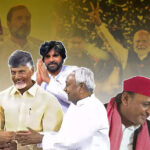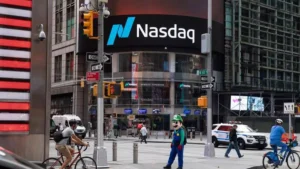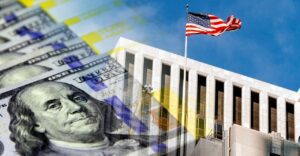How Fandom is Reshaping Politics in 2024: The Rise of the Influencer Voter
In 2024, the intersection of fandom and politics became more visible than ever—underlining a shift in how individuals engage with both the figures they admire and the political landscape around them. Events from the recent U.S. elections and cultural phenomena have taken center stage, illustrating the growing power of superfans as political influencers. Whether through vigorous stan culture or impactful social media campaigns, fandom has transcended simple admiration, morphing into a force that shapes political agendas and public discourse.
The Political Theater of Fandom
Bowen Yang’s humorous portrayal of Moo Deng on "Saturday Night Live" during the "Weekend Update" segment became a powerful commentary on the evolving dynamics of celebrity culture and fandom. Channeling recent sentiments expressed by pop star Chappell Roan regarding personal boundaries, Yang’s costume was a dazzling satire of the unyielding connections many fans feel toward their favorite personalities. This playful segment hinted at a deeper truth: fandom has become a lens through which many individuals view and interact with the world—including politics.
As the political environment grew more polarized, these connections manifested in various communities eager to support or oppose candidates based on their perceived affiliations with their favorite celebrities. This phenomenon was evident throughout the recent election cycle, where involvement from influencers impacted voter turnout and engagement.
The Role of Influencers in Politics
Influencers played a dual role in the run-up to the elections: they served as tastemakers while also acting as mobilizers. Notably, platforms like TikTok, Instagram, and Twitter (now X) became political battlegrounds where messages could go viral and mobilize thousands. Candidates who understood the need to engage with these platforms were often more successful in connecting with younger voters.
In this environment, figures like Twitch streamer Hasan Piker and conservative YouTuber Ben Shapiro amassed significant influence. They engaged millions of followers and took stances on pressing issues, thus shaping the political opinions of their audiences. Remarkably, the mere act of appearing on platforms like Joe Rogan’s podcast—who consistently garners millions of views—became a valuable asset for candidates, showing just how much online presence can dictate political narratives.
Fandom as Political Power
The recent elections illustrated how fandom can wield substantial political power. Organizations that once solely focused on entertainment have transformed into formidable political entities. Movements like Taylor Swift’s Swifties, who left X for Bluesky, showcased their dissatisfaction not just with social media policies but also with political candidates’ actions. Swift’s fandom, aligned with that of Vice President Kamala Harris’ “brat” ethos, indicated how fandom has engendered new forms of political identity and expression.
Moreover, as noted by media scholar Driessen, the 2024 campaign cycle made it clear that fans are not merely passive spectators; they are participants wielding agency and influence. From organizing events that blend political activism with fandom—such as Kendrick Lamar’s communal turn against rival Drake in Los Angeles—to outright protests against divisive practices in the gaming industry, superfans have harnessed their enthusiasm for social change.
The New Age of Political Engagement
The culmination of these dynamics suggests a fundamental shift in how political engagement occurs, significantly influenced by the rise of the influencer. These individuals have become political strategists in their own right, wielding the power to rally followers and sway public opinion. The digital age has birthed a new form of engagement where fandom and politics entwine to create communities that mobilize on critical issues.
In essence, the events of 2024 proved that being a fan cut deeper than mere admiration; it became a vehicle for political expression. The confluence of fandom and political activism paints a vibrant and complex picture of modern engagement, suggesting that as society evolves, so too will the way individuals navigate the intersections of pop culture and politics.
As we move forward, the question remains: how will these evolving fandom trends continue to shape political landscapes in the years to come? With the influence of social media and the growing recognition of fans’ political power, it is certain that this dialogue will remain critical in the ongoing narrative of democracy and civic engagement.










